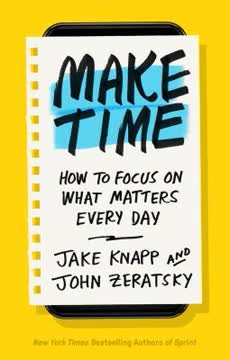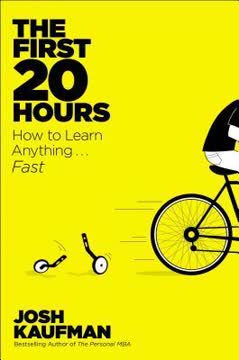重点摘要
1. 快速技能习得需要专注和战略性努力
“本书的目的是帮助你在创纪录的时间内掌握新技能。”
战略方法。 快速技能习得并非关于天赋或先天能力,而是关于系统化的学习方法。它包括选择一个你喜欢的项目,专注于一次学习一种技能,并定义一个明确的目标表现水平。这种方法强调数量和速度而非完美,使学习者在短时间内取得显著进步。
时间投入。 作者提出,大约需要二十小时的专注练习才能突破挫折障碍,并在新技能上表现出色。这挑战了流行的“1万小时定律”,并表明通过较少的时间投入也能取得有意义的进展。通过消除干扰,创建专门的练习时间,并强调数量和速度,学习者可以最大化他们的技能习得效率。
2. 将技能分解为子技能加速学习
“一旦技能被充分分解,就更容易识别哪些子技能最为重要。”
技能分解。 将技能分解为其组成部分,使学习者能够首先专注于最关键的元素。这种方法有助于识别出20%的子技能,这些子技能将带来80%的预期结果,遵循帕累托原则。
优先排序。 通过将复杂技能分解为较小的、可管理的子技能,学习者可以:
- 识别最重要的练习组件
- 避免因技能范围过大而感到不知所措
- 专注于高影响力的领域以快速改进
- 创建结构化的学习路径
3. 创建快速反馈回路增强技能发展
“你在练习中整合的快速反馈来源越多,你掌握技能的速度就越快。”
快速改进。 快速反馈回路使学习者能够迅速识别错误并进行必要的调整。这通过提供关于表现和改进领域的即时信息,加速了学习过程。
反馈来源。 有效的反馈可以来自多种来源:
- 通过记录和回顾表现进行自我评估
- 提供即时分析的技术工具
- 提供实时指导的经验丰富的教练或导师
- 来自同伴学习者的反馈
通过整合多种反馈来源,学习者可以全面了解他们的进展并进行有针对性的改进。
4. 刻意练习对技能改进至关重要
“环境练习不足以提高。”
专注努力。 刻意练习涉及有意识地专注于技能的特定方面以提高表现。这种类型的练习比简单地重复相同的动作更有效。
练习策略:
- 为每次练习设定具体目标
- 将复杂技能分解为较小的组件
- 专注于弱点领域
- 寻求持续反馈并相应调整
- 以短暂、集中的爆发进行练习以保持专注
刻意练习需要更多的心理努力,但比被动或无意的练习产生显著更好的结果。
5. 睡眠在技能巩固中起着至关重要的作用
“有效的技能习得,特别是运动技能习得,似乎需要睡眠,睡眠在将技能巩固到长期记忆中起着重要作用。”
大脑可塑性。 睡眠对于大脑处理和巩固新信息和技能至关重要。在睡眠期间,大脑加强了与新习得技能相关的神经连接,使其更加持久和易于访问。
最佳学习。 为了最大化技能习得:
- 在睡前练习新技能以增强巩固
- 在学习期间保持一致、高质量的睡眠
- 避免在4小时内练习相互冲突的技能
- 考虑在练习后短暂小睡以促进巩固
通过将练习时间表与睡眠模式对齐,学习者可以显著增强他们的技能习得和保持。
6. 环境对技能习得有显著影响
“支持技能习得的最佳方法是利用意志力消除这些软障碍。”
环境设计。 创建一个有利于学习和练习的环境对于快速技能习得至关重要。这包括消除干扰,确保必要工具的易于访问,并结构化你的环境以支持你的学习目标。
优化学习环境的策略:
- 消除潜在干扰(例如,关闭通知)
- 设置专门的练习空间
- 保持所有必要工具和材料易于访问
- 使用视觉提示提醒你的学习目标
- 通过公开承诺或学习伙伴创建责任感
通过优化你的环境,你可以减少开始练习所需的意志力,并增加一致、专注学习的可能性。
7. 克服心理障碍对学习新技能至关重要
“如果你在早期研究中没有至少一半感到困惑,你就没有尽可能快地学习。”
接受不适。 学习新技能通常会感到不适、困惑或沮丧。认识到这些感觉是学习过程的一部分,而不是失败的标志,对于进步至关重要。
克服心理障碍的策略:
- 承认并接受初期的困惑是成长的标志
- 为早期表现设定现实的期望
- 使用积极的自我对话来对抗沮丧
- 将大目标分解为较小的、可实现的里程碑
- 庆祝小胜利和进步
通过将挑战重新框定为成长的机会,学习者可以克服初期的困难,并在所选技能上快速进步。
8. 最小可行技能通常足以满足实际需求
“我们追求的是用一小部分努力获得我们重视的结果。”
实际重点。 对于许多技能,达到基本的熟练水平就足以获得显著的好处。这种“最小可行技能”方法使学习者能够快速达到功能水平,而不会陷入追求精通的困境。
最小可行技能方法的好处:
- 更快实现实际目标
- 能够更早在现实世界中应用技能
- 通过早期成功增加动力
- 灵活地在较短时间内学习多种技能
- 如果愿意,可以选择进一步追求精通
通过专注于获得最小可行技能水平,学习者可以快速获得实际好处,并决定是否投入额外时间追求精通。
9. 重新学习技能比初次习得更快
“我们的脑袋比我们想象的更容易改变。”
神经可塑性。 大脑适应和形成新神经连接的能力使重新学习技能通常比初次习得更快更容易。这对于运动技能或曾经练习过的技能尤其如此。
有效重新学习的策略:
- 从复习基本概念开始
- 专注于技能退化最严重的领域
- 利用肌肉记忆和现有的神经通路
- 将新信息与以前学过的概念联系起来
- 集中练习以快速重新激活休眠技能
重新学习展示了大脑的非凡适应能力,并为那些希望恢复旧技能或将现有技能适应新环境的人提供了鼓励。
最后更新日期:
FAQ
What's The First 20 Hours about?
- Learning New Skills Quickly: The book focuses on rapid skill acquisition, suggesting that about twenty hours of focused practice can lead to proficiency in a new skill.
- Systematic Approach: Author Josh Kaufman outlines a method for breaking down skills into smaller subskills, setting performance targets, and practicing deliberately.
- Personal Experience: Kaufman shares his journey of learning various skills, such as yoga, programming, and playing the ukulele, to demonstrate the effectiveness of his approach.
Why should I read The First 20 Hours?
- Overcome Frustration Barriers: The book provides strategies to break through the initial frustration that often accompanies learning new skills.
- Practical Framework: It offers a clear framework for skill acquisition, making it easier to start and maintain motivation throughout the learning process.
- Inspiration to Act: Kaufman encourages readers to pursue their interests without fear of failure, motivating them to take action on their "want to do" lists.
What are the key takeaways of The First 20 Hours?
- Ten Principles of Rapid Skill Acquisition: Kaufman outlines principles like focusing on one skill at a time and defining a target performance level.
- Effective Learning Techniques: The book emphasizes the importance of research and feedback in mastering new skills.
- Mindset Matters: A growth mindset is crucial; Kaufman stresses that anyone can improve their skills with practice and persistence.
What is the 20-hour rule mentioned in The First 20 Hours?
- Time Commitment: The rule suggests that dedicating twenty hours of focused practice can lead to significant proficiency in a new skill.
- Structured Learning: Kaufman encourages planning practice sessions to ensure they are efficient and targeted toward specific subskills.
- Realistic Expectations: This rule sets a realistic expectation for learners, making skill acquisition less daunting and more attainable.
How does Kaufman suggest overcoming the frustration barrier in The First 20 Hours?
- Invest Time Wisely: He suggests that around twenty hours of focused practice can help move past initial learning difficulties.
- Practice Intelligently: By breaking down skills into smaller subskills, you can focus on critical components first, making learning less overwhelming.
- Emphasize Quantity Over Perfection: Early practice should prioritize quantity and speed rather than perfection, allowing for faster skill acquisition.
What are the ten principles of rapid skill acquisition in The First 20 Hours?
- Choose a Lovable Project: Select a skill that genuinely excites you to maintain motivation throughout the learning process.
- Focus on One Skill: Concentrate efforts on mastering one skill at a time to achieve noticeable progress.
- Define Your Target Performance Level: Clearly articulate what "good enough" looks like for your skill to guide your practice effectively.
What are the ten principles of effective learning in The First 20 Hours?
- Research the Skill: Spend time gathering information about the skill and related topics to prepare for practice.
- Jump in Over Your Head: Embrace confusion as a natural part of learning; it indicates you're pushing your boundaries.
- Create Scaffolds and Checklists: Use tools like checklists to streamline practice and ensure all necessary steps are covered.
How does Kaufman apply the concept of deconstruction in The First 20 Hours?
- Breaking Down Skills: Deconstruction involves analyzing a skill and breaking it down into its fundamental components, making it easier to learn.
- Identifying Key Subskills: Focus on the most important subskills that will yield the greatest results, rather than trying to learn everything at once.
- Creating a Learning Plan: By deconstructing skills, learners can create a structured plan that prioritizes practice on the most impactful elements.
What is the importance of fast feedback loops in skill acquisition according to The First 20 Hours?
- Immediate Correction: Fast feedback loops allow learners to receive immediate responses to their actions, helping them identify and correct mistakes quickly.
- Enhanced Learning: This immediate feedback accelerates learning by reinforcing correct techniques and discouraging incorrect ones.
- Motivation Boost: Seeing quick improvements can motivate learners to continue practicing, as they can track their progress in real-time.
What is the lovable project concept in The First 20 Hours?
- Choosing a Skill: A lovable project refers to selecting a skill or activity that genuinely excites and motivates the learner, making practice feel less like a chore.
- Increased Engagement: When learners are passionate about their chosen skill, they are more likely to commit time and effort to practice, leading to better outcomes.
- Sustained Interest: This concept encourages individuals to pursue skills that align with their interests, ensuring they remain engaged throughout the learning process.
How does Kaufman apply these principles in real life?
- Personal Examples: Kaufman shares his experiences learning skills like yoga and programming, detailing how he applied the principles to achieve proficiency.
- Structured Practice: He emphasizes the importance of structured practice sessions, often dedicating specific time blocks to focus on each skill.
- Feedback Loops: Kaufman incorporates fast feedback loops into his practice, allowing him to adjust and improve quickly based on his performance.
What are some memorable quotes from The First 20 Hours and what do they mean?
- "The lyf so short, the craft so longe to lerne.": This quote from Geoffrey Chaucer highlights the importance of seizing the opportunity to learn new skills despite time constraints.
- "You can improve any skill, provided you’re willing to practice.": This emphasizes the growth mindset and the belief that anyone can learn and improve with effort.
- "Work smarter, not harder.": This encapsulates Kaufman's approach to skill acquisition, focusing on strategic practice rather than sheer volume of time spent.
评论
《前20小时》评价不一。一些人称赞其快速掌握技能的实用方法,提供了在20小时内学习新技能的框架。批评者认为这本书充满了不必要的细节和个人轶事。许多人认为前几章有价值,但认为其余部分重复。读者欣赏这个概念,但觉得可以压缩成更短的格式。一些人觉得作者的例子有趣,而另一些人则认为这些例子无关紧要或乏味。
Similar Books















